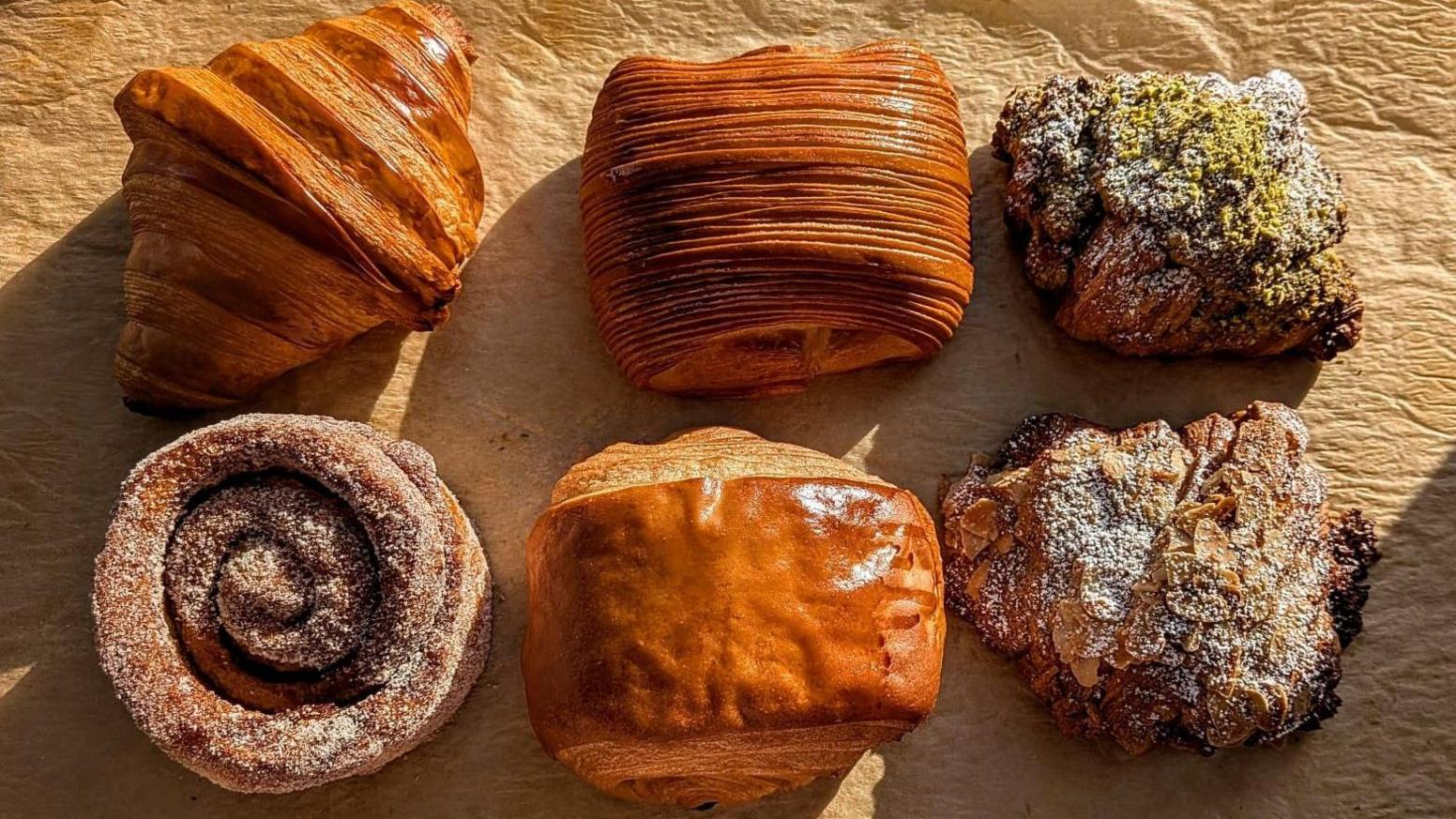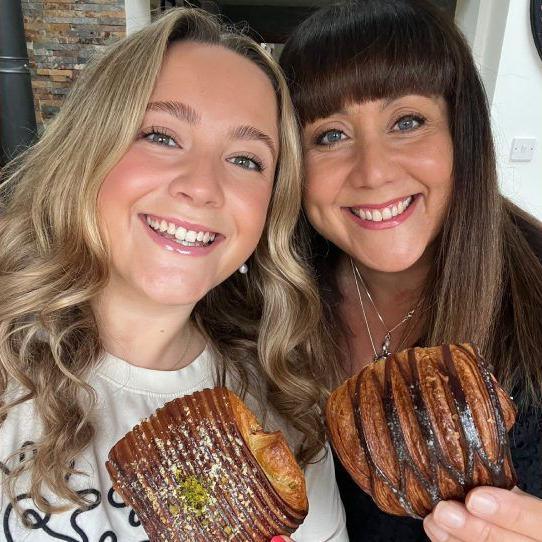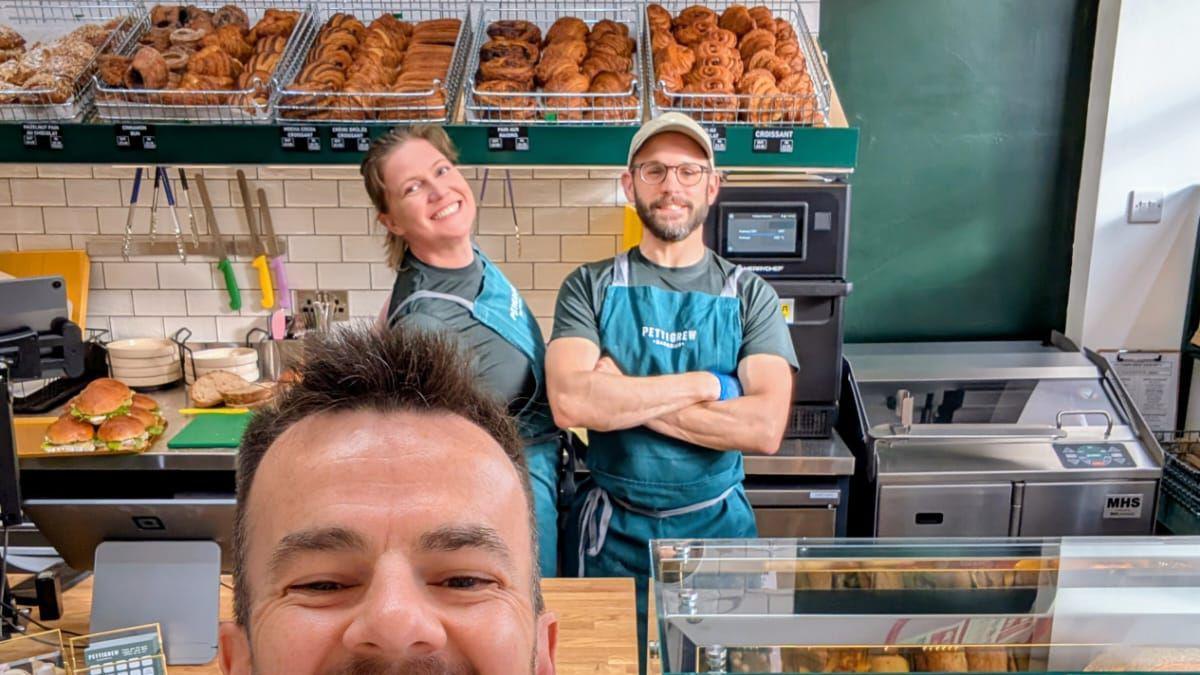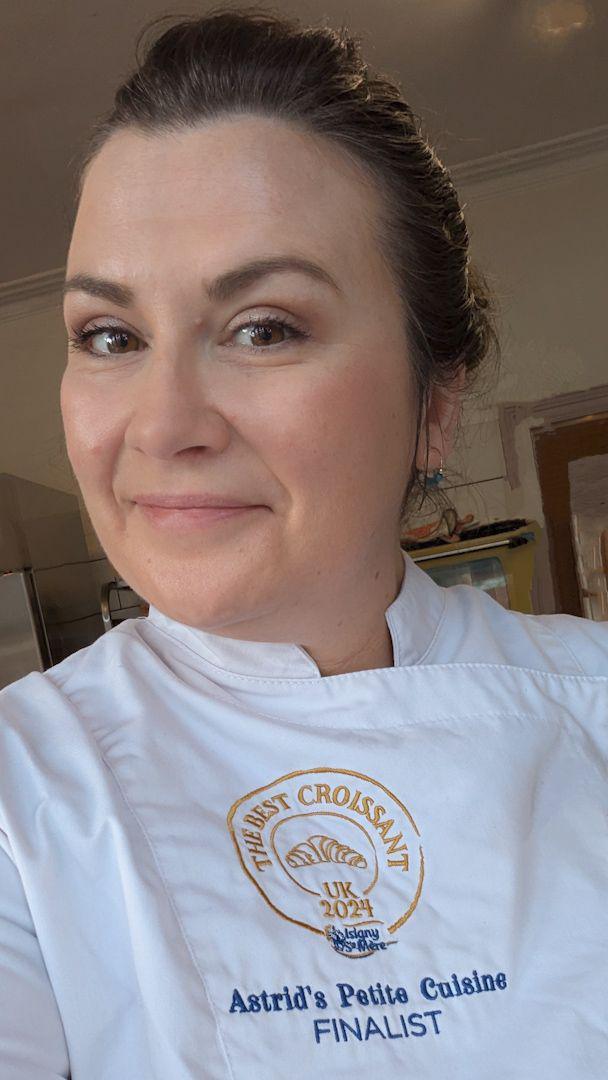Bakery tourism: 'There's no limit on how far we'll travel for pastries'

Jessica (right) and her mum Louise say they are pastry pilgrims
- Published
Jessica Morgan-Helliwell admits she would rather meet her mates for a pastry than a pint.
The 26-year-old is part of a growing number of people flocking to craft or artisan bakeries in pursuit of a flaky croissant.
"I do find myself these days more inclined to go for a coffee and a nice walk than going out and feeling a bit hungover the next day. I could be a pastry pilgrim," she said.
Jessica and her mum, Louise, from Swansea, think nothing of travelling across the UK and beyond in pursuit of delicious bakes, photos and videos of which they then share online with their followers.
'My bakery lets you take a bite out of celebs'
- Published30 July 2021
Why France is finding vegan croissants hard to stomach
- Published5 May 2024
Data suggests they are not alone in their passion for patisserie.
The UK's bakery market is one of the largest in the food industry, worth £5.74bn, according to the Federation of Bakers.
Open University research suggests the number of small bakeries across the UK is on the rise, external, with nearly one in five founded since 2020.

One bakery said its customers travel from across the world, often after seeing their baked goods on social media
The mother and daughter's love of socialising over pastries and breads runs in the family.
"Both my great-grandpa and my great-great-grandpa had their own Italian cafes. My great-great-grandpa's cafe was in Llanelli and was called Sartori's," said Louise, 48.
The pair admitted there was "no limit" on how far they would travel to sample a delicacy.
Jess said she recently drove more than an hour to one bakery just to buy a sandwich.
"We're going to Marrakesh [in Morocco] in a couple of weeks and the first thing that I've looked at is the eateries," she added.

Jessica and her mum Louise travel for miles to try different bakeries and other foods
At Pettigrew Bakery in Cardiff, David Le Masurier's team bakes and sells "thousands of pastries a day" to consumers like Jessica and Louise.
David said he had "absolutely" seen bakery tourism positively impact his business, with international travellers building food spots into their trips, influenced by online trends and viral dishes.
"They have done their research. They've gone onto social media, they've seen images. They've read reviews. They're getting tips off TikTok," he said.
"People are literally walking in with their phones, particularly if English isn't their first language, and they're holding up pictures or showing us reels and saying: 'I want this'."

David runs his bakeries with his husband, Lee, and his operations manager, Alice
Customers pay anything from £3.20 for a plain croissant to £4.50 for "limited edition" bakes - prices which David accepts are outside of the bracket of "everyday products".
But he said between the ingredients, paying for his "quality" staff and making a profit, margins were "very small".
"Wages have increased quite dramatically just recently and that does translate straight to the prices that we have to pass on to the customer," he said.
"Running a food business is incredibly challenging."
So what is it about flaky baked goods that makes people part with their hard-earned cash?
The lipstick effect
Food and travel writer Ross Clarke said he believed that even in a cost-of-living crisis, people were inclined to splurge on small luxuries.
It is a concept known as the lipstick effect, which suggests that people are more likely to buy small luxury items - like lipstick - during economic downturns.
"I think people are more inclined to maybe shell out £4.50 for a pain au chocolat if it's something special, because it's that little treat," he said.

Food tourism is now a "global phenomenon" says food writer Ross Clarke
Ross said food tourism was a global phenomenon, referring to Iceland's famous ice cream tours, known as ísbíltúr.
"Gastro-tourism is booming, also eno-tourism, so wine," he said.
"People [are] going places purely for the food or the drink.
"What a lovely thing that you can go and support local businesses, hopefully, and eat in the great restaurants and try all of these amazing things.
"Wales is probably right up there with places that should push this as a big thing."
French-born baker Astrid Roussel, who has lived in Newport, south Wales, for 17 years, said the local food scene had "changed massively" with people willing to pay for "craft" and "quality".
"People love to take pictures of pretty flaky pastries," she said.
"Yes, £4 for a croissant is good money to pay but it's an affordable luxury."

Astrid's Petite Cuisine was a finalist in UK's Best Croissant Competition in 2024
Astrid said when she first moved to Wales, finding good pastry was difficult.
"The quality of pastry I can get here now is better than in France," she said.
Astrid said she was surprised by the number of people who travelled to south Wales for her baking workshops, which range from croissant-making to traditional French baguette classes.
"I had one woman come to my course from Canada. She was coming to Cardiff anyway but purposely picked when I had availability. I was like 'wow'!"
Related stories
- Published22 March

- Published22 February

